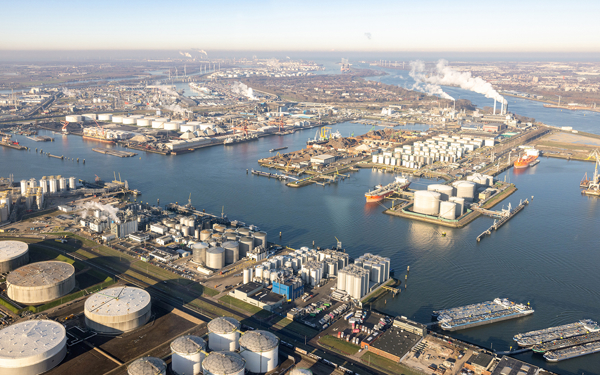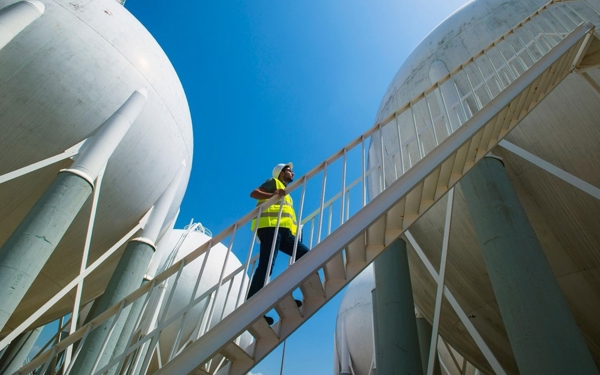One of our strategic priorities is to integrate sustainability into all our core tasks by 2025. We also want to make our own organisation more sustainable, including our reserve management. We maintain reserves in support of monetary policy, financial stability and trust in the financial system.
External and internal investments
Our reserves consist of gold reserves and our own-account investments. Our Sustainable and responsible investment policy applies to our own-account investments. About half of these investments consist of bonds issued by (semi-) sovereigns, supranational organisations and agencies. The remainder is invested externally in equities and corporate bonds through commercial asset managers.
Investment policy
We take sustainability into account in our investment choices, for instance by applying ESG (Environmental, Social and Governance) criteria. We also take into account the financial risks of climate change. In addition, we aim to contribute to the energy transition by steering towards clear carbon reduction targets in line with international climate agreements.
International agreements
As part of their contribution to achieving the goals of the Paris Agreement, the Member States of the European Union have agreed to emit at least 55% less CO₂ by 2030 than in 1990, and to be climate neutral (i.e. net zero) by 2050. We translate these targets into the choices we make in our investment portfolios.
Lower carbon emissions in our external investments
We intend to halve the carbon footprint of our equity and corporate bond portfolios by 2030 compared to the base year (2019). With this target we aim to contribute to reducing carbon emissions in the broader economy.
- Invest: We invest in companies that are committed to the Paris Agreement. We assess the quality of their transition plans and monitor their success in reducing their carbon emissions to ascertain whether they are making the transition and improving the sustainability of their business models.
- Dialogue: We are in dialogue with our investee companies through a voting and engagement manager. We encourage companies to reduce their carbon emissions more rapidly and make their business model more sustainable.
- Avoid: We avoid companies that do not commit to the goals of the Paris Agreement and that do not take steps to make their business model more sustainable. Such companies continue to generate a significant proportion of their revenue from fossil activities. We also exclude companies involved in the production of tobacco or that cause significant harm to one or more of the six EU environmental objectives.
Furthermore, we do not invest in companies engaged in the production of controversial weapons, in line with international treaties. This includes cluster munitions, anti-personnel mines and chemical, biological and certain nuclear weapons. We also want our counterparties to adhere to certain internationally applicable ethical standards, such as the United Nations Global Compact principles or the OECD Guidelines for Multinational Enterprises.
Where we stand
We have taken a number of important steps in recent years to make our own-account investments more sustainable. The main developments are shown below:
- In 2019, DNB was the first central bank to sign the Principles for Responsible Investment(PRI). These principles provide guidance as we continuously hone our investment policy and accountability. Read more about the significance of the PRI for our policies and reports.
- In 2020, we started measuring the carbon footprint of our own-account investments and we report on their climate impact in our annual report, in line with the recommendations of the Taskforce for Climate-related Financial Disclosures(TCFD).
- We launched a climate strategy for our own-account investments in 2021. We use stress tests and we monitor carbon indicators to measure climate risks. Furthermore, we endeavour to have a positive climate impact by investing in green bonds and by pursuing climate neutrality by 2050. This means that we are reducing the carbon emissions from our investments to a level as close to zero as possible (net zero).
- We raised our target for green bonds in 2022. We now invest at least 20% of the value of our internal portfolios in green bonds, amounting to around €1.2 billion. These bonds are issued to raise funds for making investments in energy efficiency or water management measures, for example.
- In 2023, we aligned an initial portfolio with goals set out in the Paris Agreement. In this specific portfolio, we actively invest in the shares of a selection of companies, and we explicitly manage these investments based on carbon reduction targets.
Exchange of knowledge
We share our experience and knowledge in the field of sustainable and responsible investing in various networks and forums, including the Network for Greening the Financial System. This is a network of central banks and supervisory authorities that aims to accelerate the scale-up of green finance and develop recommendations on the role of central banks in climate change. We also set up the Sustainable Finance Platform in which the financial sector, supervisory authorities and government ministries work together to make the Netherlands more sustainable.
Podcasts
Would you like to know more about our approach to sustainable investment? Listen to the podcast on Sustainable investment in which journalist Krista Arriëns talks about this with our experts Lisanne Cock and Rianne Luijendijk.




